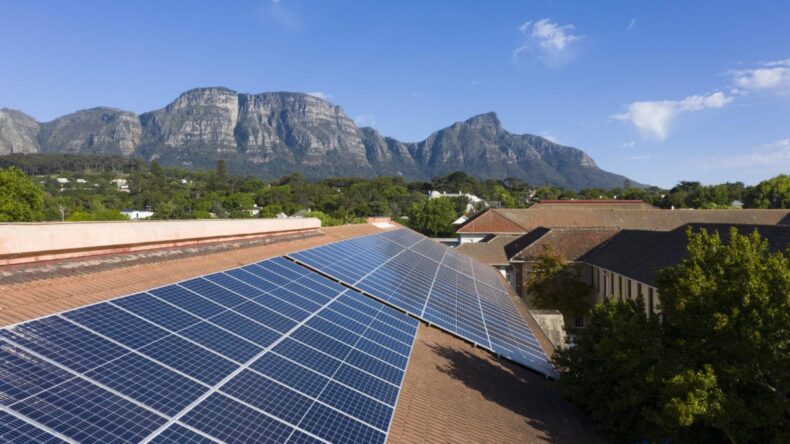We’d bet dollars to donuts that you already heard at least one story about that person who is saving tons of money thanks to a 5 kW solar system.
You’re probably thinking, “Hey, I want me some of that savings,” and then decided that you would invest in a solar system for your home. Unfortunately, you stumbled through one lengthy blog after another, which were just too nerdy for your taste.
We get it. You want to know what it will take to get 5kW of solar panels on top of your home without getting too much into details. So in this article, we will provide you with everything you need to check off your solar panel project checklist.
Table of Contents
How Many Solar Panels Do I Need For a 5kw Solar System?
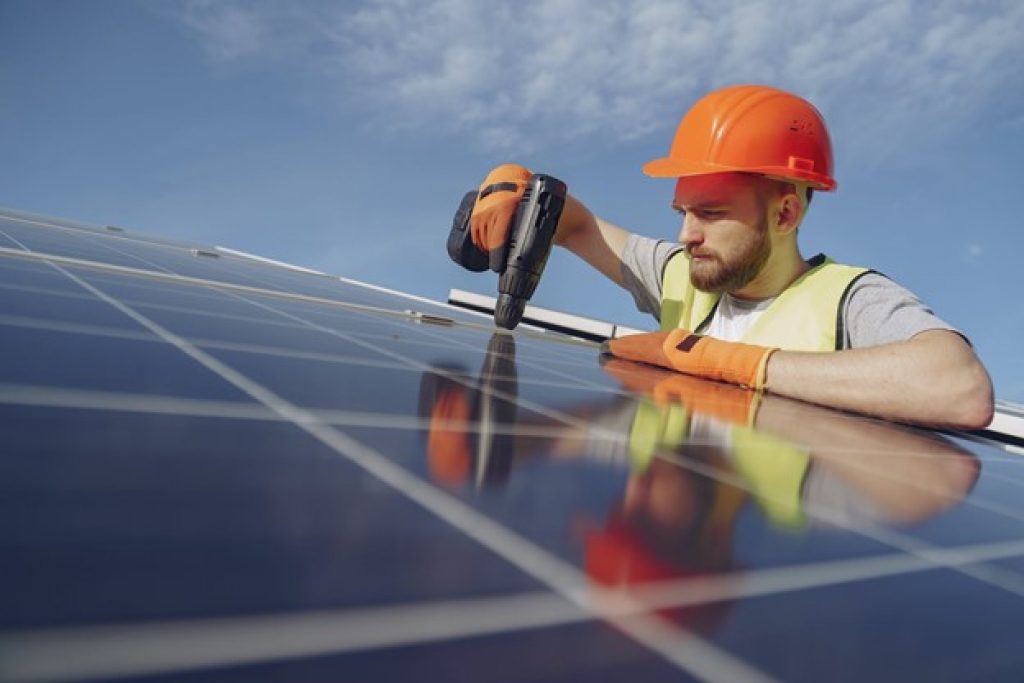
If you want the quick and dirty, you will need 14 to 20 panels for a 5kW solar system. If you want to know how we arrived at the number, read on. It is not as hard as you think.
There are two types of commercially matured solar panels available in the market today:
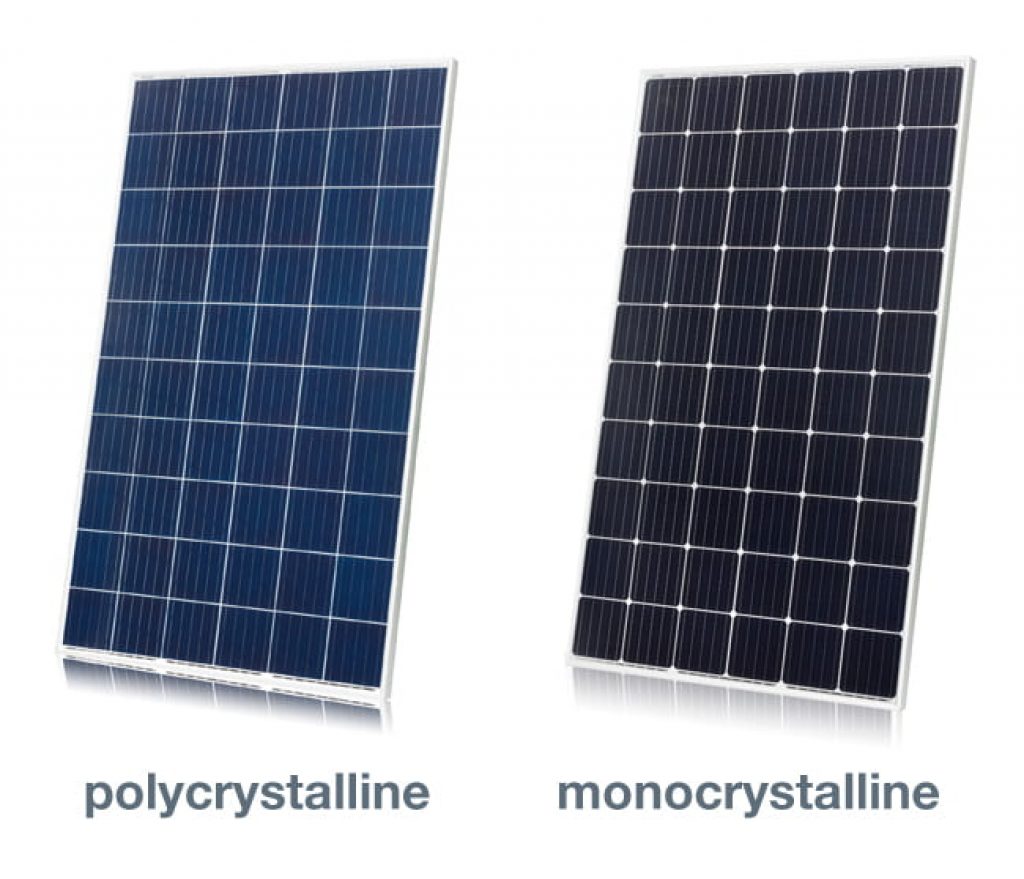
- The compact and efficient kind. In our opinion, Monocrystalline solar panels have that lustrous, glistening look that gives it points on aesthetics. Aside from being an eye-pleaser, they also have the highest efficiency ratings. So if you value looks and have less space on your roof to put up a solar system, you should go with monocrystalline.
- The economy kind. On the other hand, Polycrystalline solar panels are the azure-colored wafers you see on some rooftops. They are the less efficient cousins of monocrystalline, which is why you will need more space on your roof for the same number of watts. However, they are attractive if you are looking for budget-friendly options.
For a residential setting, you would want to look for the “60-cell” solar panels on the market, which have a standard measure of about 1.7m length and 1m width. You will encounter “72-cell” types, but those are ideal for commercial or industrial buildings.
Combining what we know so far, each 60-cell solar panel will have about:
- 250 to 300 watts for polycrystalline technology; and
- 310 to 400 watts for monocrystalline wafers;
Based on your 5kW requirement, we are looking at about 16 to 20 polycrystalline solar panels or 14 to 15 monocrystalline wafers.
Are you with us so far? We know it’s been quite a handful of information, but don’t worry. You got this! After finishing this article, you will have the confidence to implement your 5kW solar system project.
Let’s examine this scenario: Suppose you are budget-conscious and bought 20 polycrystalline solar panels which are secured on your roof. That would take about 34 sqm of roof space in total.
It is also good practice to leave 25% of the total roof space empty when installing solar panels for safety purposes. Now, let’s compute for the whole area we need:

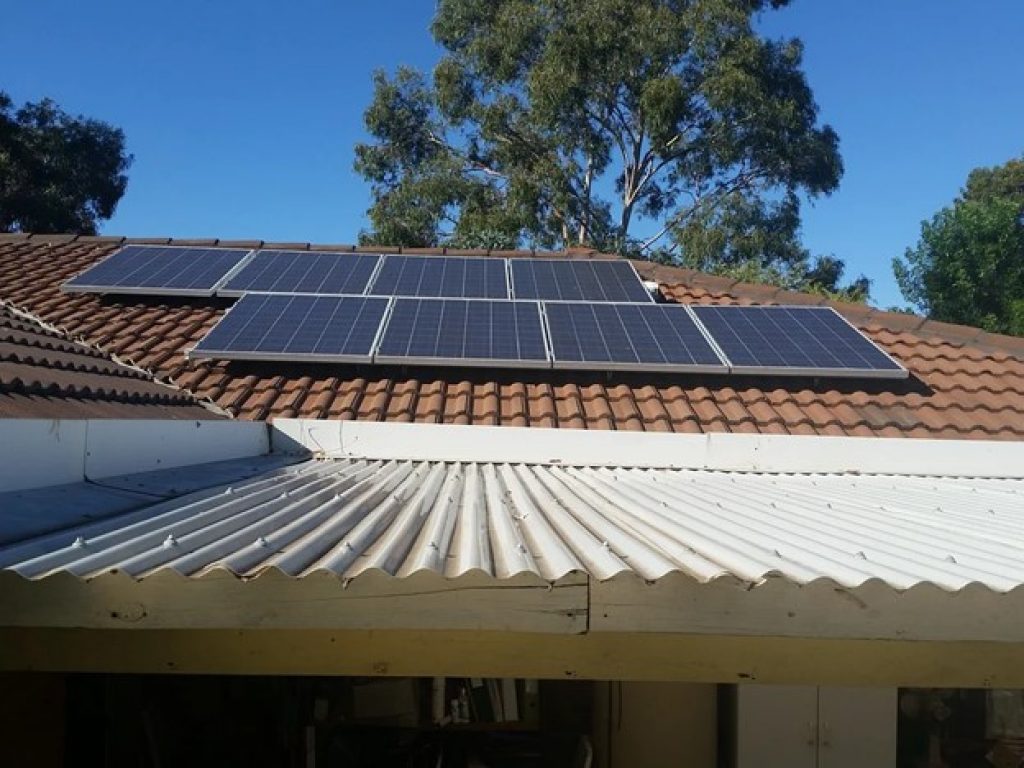
Congratulations! You now have a reference on how many solar panels and total roof space you will need to put up your solar panels. Next, let’s get to the good part: how much electricity will you produce on your own, and how long would it take to get your investment back.
How Much Power Does a 5kW Solar System Produce Per Year?
We know you are excited to see how much you will save annually from your 5kW solar system project. But to appreciate the figures, we need to understand how we got to them.
Let’s first look at a typical sunny day when your solar panel converts solar energy to electric energy.
Imagine that as you wake up in the morning and peer out the window, you notice that the sun slowly begins to rise and shines light into your horizon. As the day progresses, the sun follows an arc-like path that peaks during noontime.
The power output of solar panels looks the same. It is because the electricity they produce depends on the amount of irradiance they receive throughout the day.
“Irradiance? Wha-?”
Relax. Irradiance is just a fancy term for solar power. Saying it makes you feel smart. As an added smarty pants bonus, irradiance is measured in Watts per meter squared. You’re welcome.
Bottom line: You want longer daytimes and intense sunlight for you to maximize the benefits of a solar panel. Extreme sunlight causes peak production for your solar panel. The longer that peak sunlight lasts, the more electric energy you can enjoy. For Cape Town, we estimate that a 5kW solar system will give you approximately 6,000-8,000 kWh per year.
Don’t believe us? Ask the guys over at the National Renewable Energy Laboratory, The World Bank, and the International Finance Corporation.
You can verify these assessments by visiting their online calculators over at Global Solar Atlas and PVWatts Calculator.
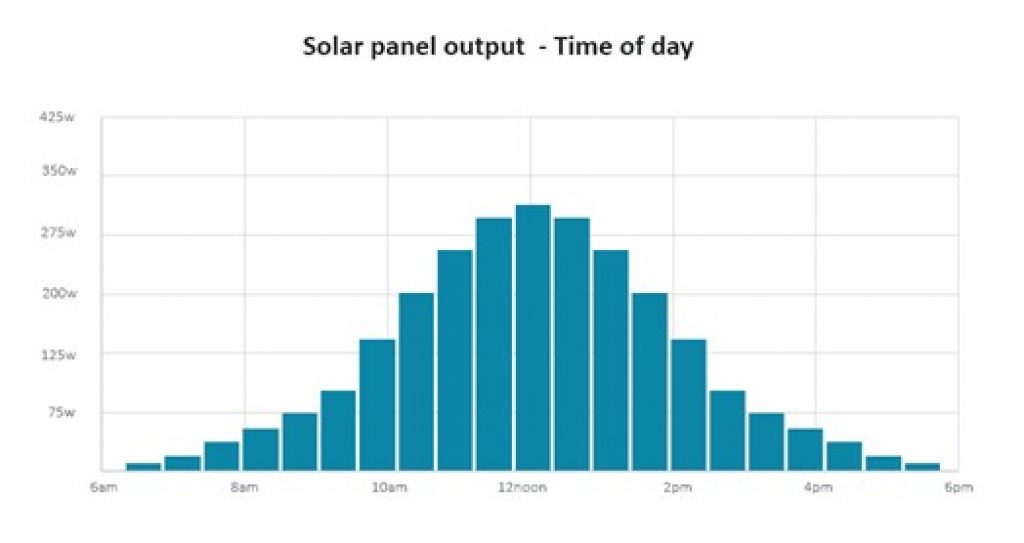
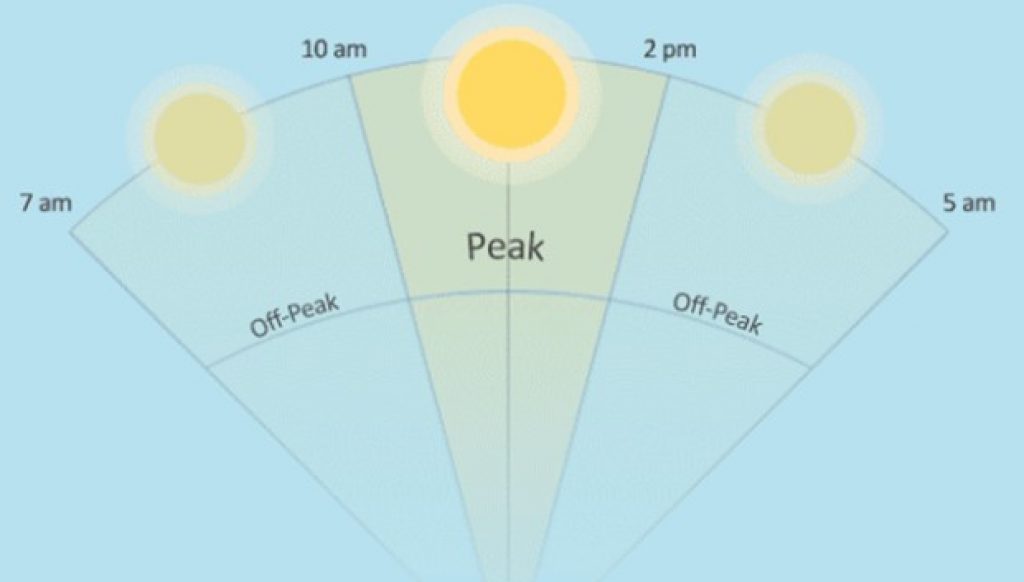
How Much Does a 5kw Solar System Cost in South Africa?
Okay, let’s do a quick recap: 5kW solar system. 20 polycrystalline panels. 45 m2 roof space. 6,000-8,000 kWh electric energy saved per year. Now, how much is this going to cost?
According to our research, a 4kW to 5kW system is going to cost you around R70,000-R140,000. We do not recommend that you do this independently. This is a big project, and plenty is at stake, especially your safety. However, we will give you an idea of how much the main components cost so you can negotiate with your supplier or contractor.
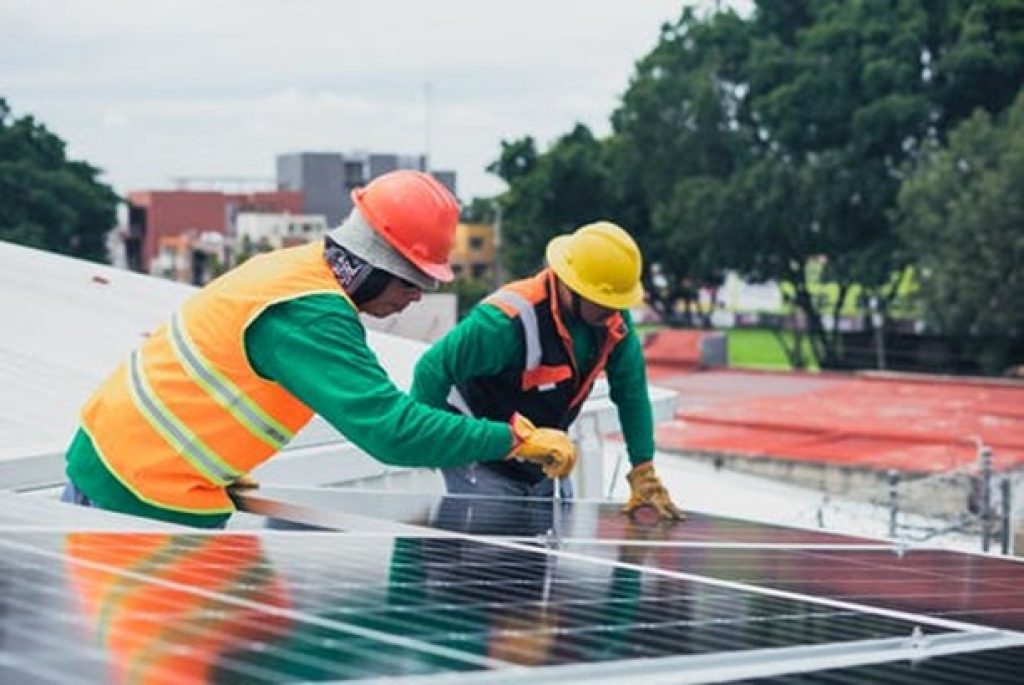
| Description | Price Range per Unit (R) | Quantity | Total Cost Pre-tax (R) |
| Inverter 5kVA | 10k to 30k | 1 | 10k-30k |
| PV Panel 250w to 350w | 1200 to 2000 | 14 to 20 | 24k-35k |
| Other Electric Components | 10k-20k | 1 | 10k-20k |
| Roof Mount Kit | 200-1000 | 14 to 20 | 2800-20k |
| Electrical Works and Installation | 10k-18k | 1 | 10k-18k |
| Certification | 1000-5000 | 1 | 1000-5000 |
| TOTAL | R58k-R128k |
How Much Money Will a 5kw Solar System Save You Every Year?
For your typical residential home in Cape Town, electricity costs are 330c/kWh. We estimated earlier that your 5kW solar system would save you 6,000-8,000 kWh per year.
Multiplying the electricity cost with the energy saved shows that your investment cuts your annual electricity bill by R19,800 to R26,400.
This means you get a return on your investments after four (4) to six (6) years. With manufacturers issuing warranties that last up to 25 years, you are likely to begin saving money beyond your sixth year of ownership.
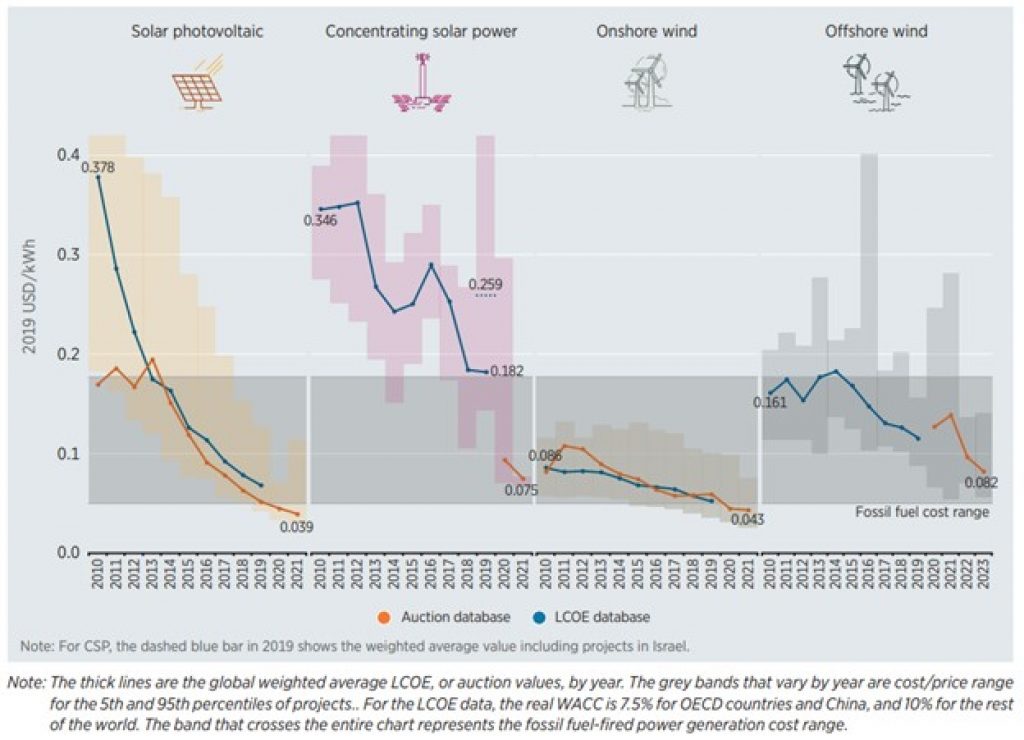
Manufacturers have already spent decades driving down the cost of solar panels and renewable energy technologies, making it feasible for you to enjoy in your home; Renewable Power Generation Costs In 2019; International Renewable Energy Agency; June 2020; Web; Accessed: September 12, 2021
FAQs
How do I maintain my 5kW solar system to ensure it operates efficiently?
Regular maintenance involves cleaning the solar panels to remove dust and debris, ensuring they receive maximum sunlight. It’s also essential to periodically check the system’s wiring and connections and monitor the inverter’s performance. If you notice any significant drop in efficiency, consult with a professional.
Can I upgrade my 5kW solar system to a larger capacity in the future?
Yes, many solar systems are designed to be modular, allowing for expansion. If you’re considering an upgrade, consult with your installer to ensure your current setup can accommodate additional panels and that your inverter can handle the increased capacity.
How do I know if my roof orientation and angle are suitable for a 5kW solar system?
Ideally, solar panels should face the direction that receives the most sunlight, typically north in the southern hemisphere. The angle of the panels should also match the latitude of your location for optimal sunlight exposure. A solar professional can assess your roof and provide recommendations.
Are there any insurance considerations when installing a 5kW solar system on my home?
Yes, once you’ve installed a solar system, it’s essential to inform your home insurance provider. They might adjust your policy to cover potential damages to or caused by the solar panels. It’s also a good idea to check if the manufacturer or installer offers warranties or guarantees.
How does shading from trees or other structures affect the performance of a 5kW solar system?
Shading can significantly impact the efficiency of solar panels. Even if a small portion of a panel is shaded, it can reduce the output of the entire system. It’s crucial to install panels in areas with minimal shading and consider potential future obstructions like growing trees.
What happens to the excess energy produced by my 5kW solar system?
If your system produces more energy than you consume, the excess energy can be fed back into the grid, depending on your location and grid connection. Some utility companies offer credits or payments for this excess energy. Alternatively, you can store the excess energy in a home battery system for later use.
Final Thoughts
So there you have it, a complete computation on your 5kW solar system. Pat yourself on the back. We did some intense calculations, but you hung in there like a champ. Solar panels are an excellent investment, in our humble opinion, and here’s why:
- It produces clean energy;
- Manufacturers have already spent decades driving down the cost of solar panels and renewable energy technologies, making it feasible for you to enjoy in your home.
- It is becoming a typical investment where users will surely get ROI
- The government gives you subsidies and perks for using it; and
- You get to show your friends how smart you are when you tell them what irradiance is all about.
Now, how would it make you feel if we told you that you could also store the solar energy so you can use it for later? Well, that is a story for another day, my friend. For now, enjoy your savings.

